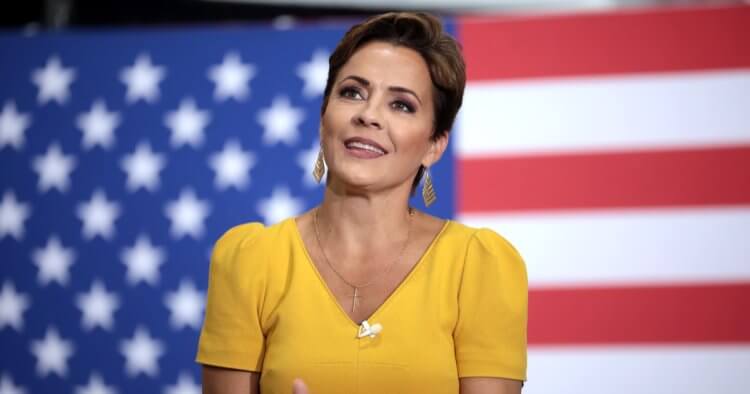The Arizona Supreme Court has sent a key part of Kari Lake’s election lawsuit back to trial court for review, breathing new life into the former gubernatorial candidate’s legal challenge to the outcome that she says was unfair.
In an order issued on March 22 (pdf), the Arizona Supreme Court directed the trial court to review a key claim related to signature verification procedures on early ballots in Maricopa County, reviving Lake’s hopes in her election challenge.
“The signature verification process in Maricopa County is a house of cards. Thanks to this ruling, my team will get the chance to topple it,” Lake said in a statement expressing satisfaction with the ruling.
Lake has focused her legal challenge on the claim that Maricopa County election officials intentionally caused problems with ballot printers at some polling places on Election Day, which fell on Nov. 8, 2022. Their alleged intentional misconduct produced ballots that were too light to be read by on-site tabulators, leading to delays and long lines at dozens of polling places in what Lake said was a bid to quash Republican voters.
Maricopa County officials have disputed this in the past, arguing that everyone had a chance to vote and all ballots were counted because the ones that were affected by the printers were taken to more sophisticated counters at election headquarters.
In her complaint to the Arizona Supreme Court (pdf), Lake raised seven legal issues with the request for review, including the allegation that 35,563 “unaccounted for ballots” were intermingled with other ballots at a processing facility and that procedures on testing tabulating machines weren’t followed, and so the results of the election were at the very least “uncertain.”
Election data shows that Lake lost to Hobbs, a Democrat, by about 17,000 votes during the midterms.
In its Wednesday order, the Supreme Court rejected Lake’s claim of intermingled ballots, saying that “the record does not reflect that 35,563 unaccounted ballots were added to the total count.”
After two lower state courts rejected Lake’s election lawsuit, she filed an appeal with the Arizona Supreme Court and the high court agreed in a March 3 order (pdf) to grant a motion for expedited consideration.
The high court indicated it would deliberate on March 21 and decide whether to accept review and, in its March 22 order, it denied review of six out of seven points included in Lake’s appeal.
“It is ordered denying review of issues one through five and seven,” reads the opinion written by Chief Justice Robert Brutinel. “The Court of Appeals aptly resolved these issues, most of which were the subject of evidentiary proceedings in the trial court” and that Lake’s challenges are “insufficient.”
However, the high court granted review of issue number six pertaining to the Maricopa County Recorder’s application of signature-verification policies during the election.
“It is further ordered granting review of issue number six to the extent count three of the complaint challenges the Maricopa County Recorder’s application of signature-verification policies during the election,” the opinion reads.
Issue number six asks whether the lower court was mistaken “in dismissing the signature-verification claim on laches[,] mischaracterizing Lake’s claim as a challenge to existing signature verification policies, when Lake in fact alleged that Maricopa failed to follow these policies during the 2022 general election.”
Dismissing a claim based on laches is the idea that a plaintiff has unreasonably delayed in asserting their legal claim or right, causing harm or prejudice to the defendant.
The Arizona Supreme Court concluded that the lower court indeed made an error as “Lake could not have brought this challenge before the election.”
The court did not evaluate Lake’s signature claim on its merit, however, ruling only that the lower court was mistaken in its justification for rejecting it. With its decision, the Supreme Court sent that claim back to the trial court for consideration.
Lake’s campaign team called signature verification a “third rail” for Maricopa County over the past several years and suggested that her election fight remains in play.
This is an excerpt only. Read the full story here.
 Telegram is where we really talk. Don't miss out!
Telegram is where we really talk. Don't miss out!






